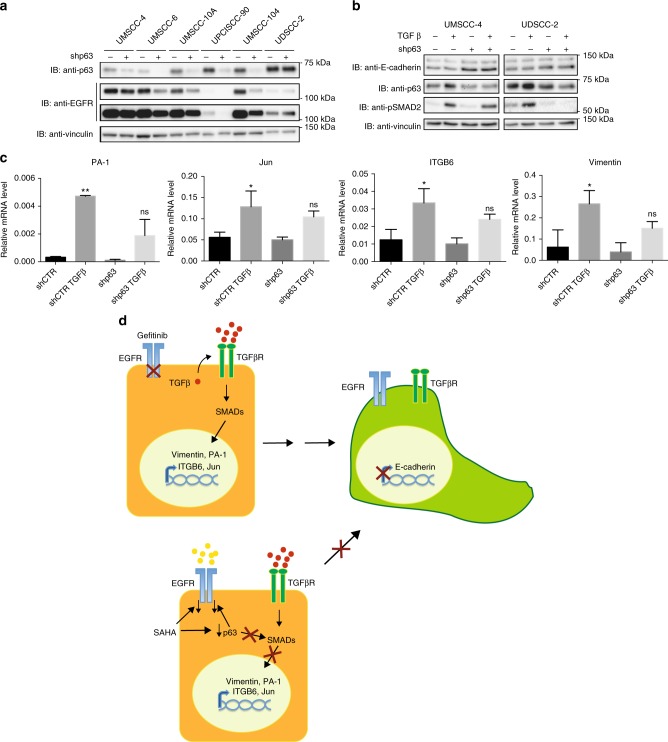Fig. 4.
p63 knockdown decreases epidermal growth factor receptor (EGFR) expression and inhibits transforming growth facor β (TGFβ)-induced epithelial to mesenchymal transition (EMT) in human papillomavirus (HPV)-positive and HPV-negative head and neck cancer (HNC) cell lines. a p63- and control short hairpin RNA (shRNA)-transduced HNC cell lines were lysed and analysed by immunoblotting (IB) with the indicated antibodies. For the EGFR IB both the low and high exposures are shown. b p63- and control shRNA-transduced HNC cell lines were serum-deprived (0.5% foetal bovine serum) for 24 h and then treated with 5 ng/ml TGFβ. At 24 h, cells were lysed and analysed by IB with the indicated antibodies. c Total RNAs from UM-SCC-4 cell line transduced with p63 and control shRNA treated with 5 ng/ml, were isolated for RT-qPCR. PA-1, Jun, ITGB6 and vimentin expression was normalised to ribosomal phosphoprotein and expressed as means ± SD. *P < 0.05; **P < 0.01; ns not statistically significant compared to shCTR (multiple comparison one-way analysis of variance). d Schematic representation of the action of SAHA in reverting EMT process that causes gefitinib resistance. Gefitinb treatment may induce tumour-promoting TGFβ signals, which initiate EMT through activation of SMADs and upregulation of mesenchymal transcription factors. SAHA treatment decreases ΔNp63α, and subsequently downregulates EGFR expression and prevents the upregulation of TGFβ-dependent mesenchymal transcription factors by inhibiting SMAD activation

